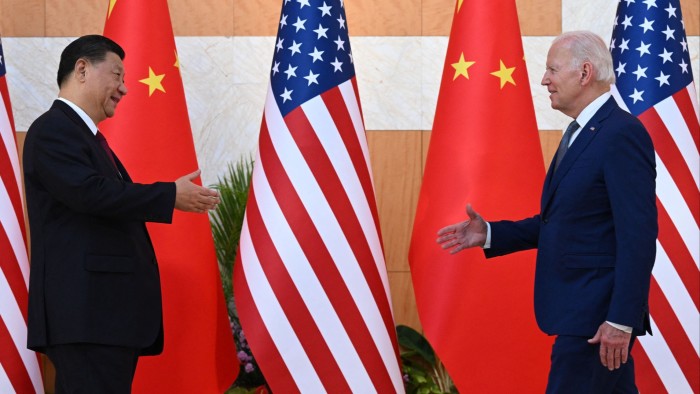Wanted: in-house legal leaders who can interpret world events

Roula Khalaf, Editor of the FT, selects her favourite stories in this weekly newsletter.
In a world of “polycrisis” — where interlinking crises have unfolded to present unique challenges for businesses — chief legal officers are increasingly under pressure to provide strategic advice on geopolitical events.
“The need for general counsel to have a wider world view is part of an ongoing trend,” says Nick Hedley, co-founder of executive search firm Hedley May. “Just being able to give the legal answer does not make you very valuable to a chief executive.”
Hedley advises company executives to appoint general counsel who are knowledgeable about five areas in particular: geopolitics; climate change; social inequality; technological revolution; and ageing populations.
General counsel need to consider how such developments will affect their companies, he says. “They have to be thoughtful about these issues, but also be aware there is no right answer. They need to risk being wrong, which takes courage.”
This also means being able to take a bigger picture view of all the potential risks affecting the business.
Mark Gregory, general counsel and corporate affairs director at UK engineering group Rolls-Royce, says: “With key business risks now falling under the remit of the legal function — such as trade sanctions, ESG, cyber security and data privacy to name just a few — chief legal officers are increasingly called to be the ‘chief horizon scanner’.”
These risks have expanded with the need to comply with global trade sanctions on Russia and US sanctions on China.
A 2023 survey by the Association of Corporate Counsel, a professional group, found that global regulatory compliance was the number one concern for 66 per cent of in-house lawyers.
More than 40 per cent of the chief legal officers in Asia and Europe surveyed expected political developments to be their top challenge in business — an expectation shared by 32 per cent in the US. Tellingly, the survey also found that providing legal advice was now only around 27 per cent of the chief legal officer’s role.
For some, the proportion is even less. The chief legal officer at one international consumer goods company says: “My role now is primarily as a C-suite strategic adviser. Giving technical legal advice is only 15 per cent of my job.”
Hedley’s recruitment firm is conducting a study to gauge how corporate leadership is changing. “There is a difference between wisdom and judgment,” he says. “Wisdom is about mastering past experience; judgment is about looking forward and making decisions. Successful general counsel or chief legal officers increasingly need the latter.”
This is not always so easy for lawyers whose training has traditionally taught them to look back at precedents.
“These days, it’s almost standard practice to put government affairs in the GC remit,” points out Leigh Dance, founder and executive director of Global Counsel Leaders, a forum.
But, while many general counsel are more willing to engage with peers and develop their views, she says, they are not necessarily adept at advocating on geopolitical topics: “They need training to broaden their knowledge and improve their communication skills.”
The in-house lawyers at Flex, a US electronics design and manufacturing company, have changed their approach to advising the business in the light of recent geopolitical events. “We now mix legal, policy, and political expertise for a holistic approach,” says Scott Offer, executive vice-president and general counsel at Flex.
This helps the team to make more informed decisions on risk, but also improves the “ability to work with policymakers and understand better the real objectives behind rule changes”, he explains.
The team turned to a broader range of advisers, such as former government officials and geopolitical risk consultants, to help them assess scenarios over a three-to-five-year horizon.
In response to tighter trade regulations, for example, the Flex legal team has added both legal and geopolitical expertise to the trade and government affairs functions.
Other in-house legal teams have similarly become experts in scenario-planning and conducting dry runs.
Such exercises reveal which skills and experience are most valuable. As multinational companies navigate increasing China-US trade tensions, for example, members of the legal function based in locations around the world are well placed to advise on the nuances of rapidly shifting situations.
“My in-house legal team are part of the global business but have the local context that is invaluable,” says Barbara Levi, group general counsel at UBS bank. “They often understand what is happening on the ground better than any other source.”
In 2011, Kent Walker, then general counsel at Google, told the FT that his job was to “see round corners”. At the time, only a few general counsel were of this opinion. Now, chief legal officers who have watched their role grow to touch every part of the business, and noted how many business challenges have a legal component, are inclined to agree.

Comments